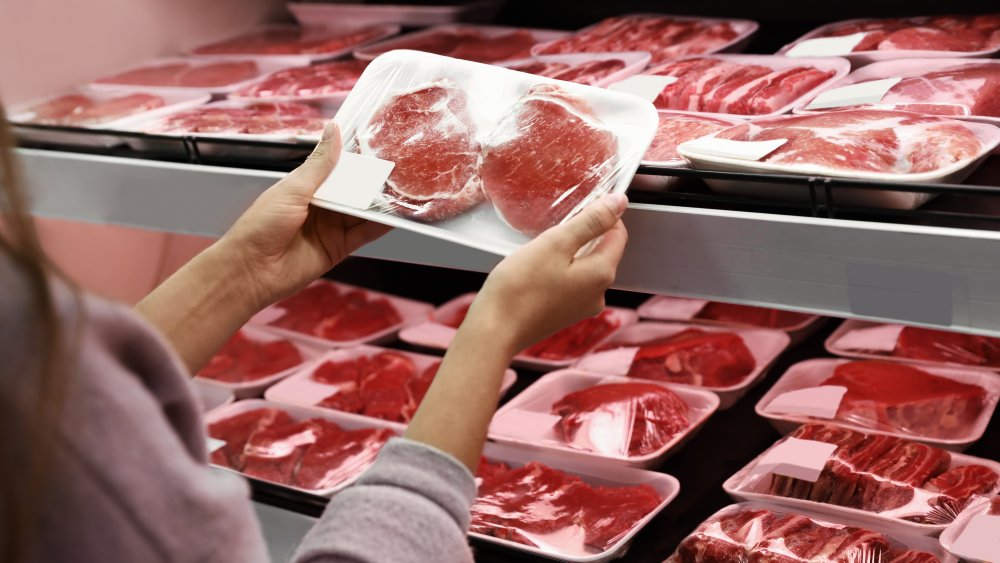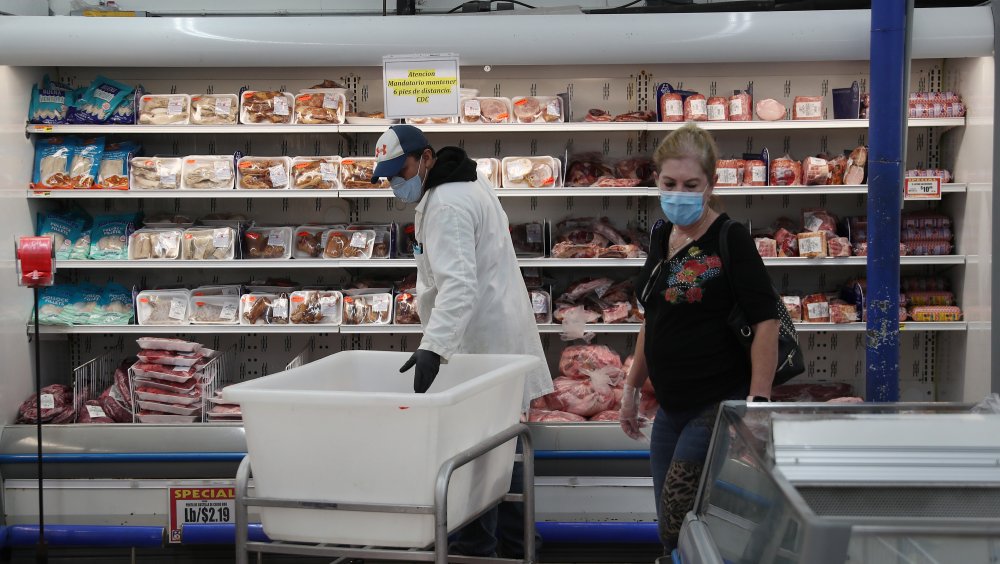How Safe Is It To Eat Meat During The Pandemic?
The country's meat industry is in turmoil due to the coronavirus pandemic. Tyson Foods took out a full-page ad in three of the nation's newspapers last week, including The New York Times and The Washington Post, warning that the "food supply chain is breaking" (via WINK). Smithfield Foods, one of the country's largest pork processors, had to close its Sioux Falls, South Dakota processing plant because of a massive coronavirus outbreak among the plant's employees (via Forbes).
Most of the country, however, isn't facing a meat shortage, and the question isn't how to get meat, but rather, whether or not it's safe to eat (via The San Francisco Chronicle). Thankfully, experts say that there's no reason to be concerned about meat consumption during the coronavirus crisis. Because it's not possible for cows, pigs, lamb, and poultry to be infected with the coronavirus, you don't need to work about the meat, dairy, or egg products coming from those animals to be contaminated (via MyRecipes). "Livestock and poultry are not susceptible to infection with SARS CoV-2 — the virus that causes COVID-19," says Jim Roth, DVM, Ph.D., Director of the Center for Food Security and Public Health at Iowa State University in Ames. "Their meat, milk, and eggs are safe to eat."
The biggest reason meat is safe during the pandemic
Workers who work in meat processing plants always wear personal protective gear to prevent the spread of viruses and bacteria even in the most normal of times. Now, meat processors such as Tyson are enhancing the use of personal protective equipment (PPE) as well as protective barriers between employees and the meat they handle (via RWDSU).
They and Smithfield Foods are also paying their employees for time spent in quarantine so that employees won't be tempted to come into work even if they're feeling unwell. But it's important to remember that the protective measures at meat processing plants are in place in order to protect the workers, not the consumer.
The most important factor to consider when it comes to discussing the safety of eating meat in these times is that there is absolutely no evidence that the virus is spread through food. Coronavirus is spread from person-to-person contact and doesn't survive long enough on surfaces like the packaging of meat for it to pose a risk once it arrives on grocery store shelves.

